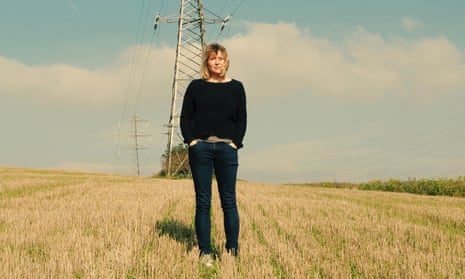New statistics have shown up the “inexcusable” fact that only 76 classical concerts among 1,445 performed across the world from this year to 2019 include at least one piece by a woman.
The figure amounts to about 95% of concerts having music only composed by men.
The composer Emily Hall, who called the result of the tot-up inexcusable, said: “All organisations have a responsibility to programme at least one work by a female composer, I just think that should be standard now. I’m always shocked when I go to a concert and they don’t, it seems such a straightforward thing to do ... I’m always amazed, it seems like such a huge oversight.”
The figures, compiled by the Donne – Women in Music project and Drama Musica, also show that a total of 3,524 musical works will be performed at those concerts, and, of those, 3,442 (97.6%) were written by men and only 82 (2.3%) were written by women.
The soprano Gabriella Di Laccio said she was shocked by the research. “I don’t really understand it, we don’t have excuses any more. The idea that there might not be enough female composers or the music might not be good enough ... this is all in the past.”
Campaigners say the old arguments about the canon being overwhelmingly male do not stand up.
Di Laccio created the Donne project this year to champion female composers and highlight women whose music often went unrecognised in their lifetime. She said the project had convinced her that there were more than enough female composers in history to get a fairer gender balance at concerts.
She thought part of the solution could come from audiences being more questioning about the music orchestras presented. “The whole idea of doing this is not to make people angry but to raise awareness. I hope this will be a gentle wake-up call.”
Di Laccio said she had heard of orchestras praising themselves for including music written by a woman. “But then it is a three-minute piece, while everything else is 20 or 40 [minutes] – and they only do it to cover themselves.”
Hall said she was in favour of positive discrimination. “It works, it really does. We need to rebalance the scales.”
She recalled encountering lots of “unconscious barriers” in her career and remembered her music education being all about middle-aged men. “It has taken me until now to actually conduct my own music because I had always felt like I shouldn’t be doing that on some subconscious level. We need to make it completely equal for the next generation.”
Some organisations have introduced measures to address the issue. The BBC Proms and the Aldeburgh Festival, for example, have pledged a 50/50 gender balance in commissions of contemporary composers by 2022.
The Trinity Laban Conservatoire of Music & Dance announced a commitment to female composers, entitled Venus Blazing, which it said it hoped would abolish all-male composer programmes. It said music by women, past and present and across genres, would make up more than half of its concert programmes in 2018/19.
Sound and Music, the UK’s national development agency for new music, has promised that by March 2020 at least 50% of the composers it works with will identify as women.
Di Laccio said orchestras should be playing the great works by composers such as Beethoven and Mozart but that did not excuse them from ignoring so many female composers.
The project Donne and the independent label Drama Musica gathered the data for the figures from the 2018-19 programmes of 15 large orchestras across the world, including the London Philharmonic Orchestra, London Symphony Orchestra, New York Philharmonic, Chicago Symphony Orchestra, and Los Angeles Philharmonic.
The LSO’s managing director, Kathryn McDowell, said the orchestra championed the work of women. “Of the 12 young composers on our programmes this season six are women, and while entry to them is based purely on merit, we have seen a 50/50 gender split emerge for the past two years, signalling that the best composers writing in Britain today are just as likely to be women as they are men, which is exactly as it should be.”
Timothy Walker, chief executive and artistic director of the LPO, said the orchestra did “not make artistic choices based on issues of gender, religion or ethnicity” but was “strongly committed to supporting female musicians and composers”.








Comments (…)
Sign in or create your Guardian account to join the discussion